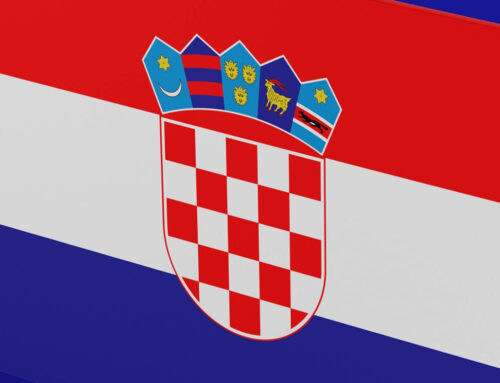It is already widely known and it becomes stereotypical to talk about problems in the Balkans. In this sense, there is a situation where Macedonia and Greece are in a two-decade quest for a solution who owns the historical right to the name “Macedonia” and its heroes from two millennia ago. It sounds strange, but it’s a problem that if a compromise is not found it can destabilize this whole fragile region. The problem began in 1991 when Macedonia declared independence from the former Yugoslavia under the name Republic of Macedonia. Greece, which also has its own region called Macedonia, says that Skopje promotes irredentism and seeks a change in its name.
Since 2017, Macedonia has a new government after the 11-year rule of “The Internal Macedonian Revolutionary Organization – Democratic Party for Macedonian National Unity” (VMRO-DPMNE), where after the blockade from Greece for membership of the country at the NATO Summit in 2008, a strong cultural antiquation was practiced, which virtually froze the negotiations throughout the period. The new leadership from “The Social Democratic Union of Macedonia” (SDSM) party in Skopje, prioritized an ambitious task towards a solution to the name issue and finally an entry into NATO until this year’s Summit in July, and further launching membership negotiations with the European Union. From the Greek side, the incumbent Prime Minister Tsipras wants a victory on the international stage and an increase in popularity ahead of the country’s elections which is still struggling with the aftershocks of the debt crisis. Simply on both sides there is a desire, but mass protests in Greece for any solution that would include the name “Macedonia” tell a different story. Also there is the scope of the geographical determinant in the new name and the Greece positon of “erga omnes” for the overall use and the further internal implications on the naming of the ethnic group and its language shows that any solution will require extreme efforts from both sides and the entire international community.
The information from the intensified and constant bilateral meetings at the highest level is kept secret and is always interpreted with different intensity on how much progress has been made, but one thing is clear that the negotiations are in a crucial period, where mediator Matthew Nimitz described the meeting in Sounio – east of Athens – as “very hard, hardworking, intense a few times”. Both ministers laid the ground for the new meeting on May 17 2018 between the two prime ministers in Bulgaria on the sidelines of the EU-Western Balkans Summit. The meeting led to an unexpected outcome where a proposal from the Macedonian side was discussed about the latest and kind of surprising proposal “Republic of Ilinden Macedonia”, which appeared to be generally acceptable for both parties. But immediately after the announcement of this proposal as a possible solution, a strong obstruction emerged from the opposition of the two countries, which characterized the proposal as unacceptable, and also for the main Greek opposition party New Democracy as a solution that further stimulates irredentism. From the Greek side, Prime Minister Tsipras failed to provide support from any of its coalition partners, and the Macedonian opposition declared that it would not support the proposal. The Macedonian prime minister says that this proposal makes a full separation with the region in Greece, were the Macedonian foreign minister said that he has not met more adequate proposal so far for which both sides have agreed.
However, the proposal seems to have been rejected by the Greek side in the next round of talks in New York and possible solution will be sought probably between “North” or “Upper” Macedonia. The final race is set for the upcoming NATO summit as the two foreign ministers in Brussels said that they have completed the main round of the negotiation and they are ready to hand over the final stage to the two prime-minsters which will determine the final outcome.
A potential solution will contribute to strengthen the stability and the European perspective of Republic of Macedonia and a true example for the other countries from the Western Balkan, while failure can mean a new wave of nationalism in the country that will be deprived of the European prospect which will leave enormous space for future instability and adverse impacts in the region.
Sources:
“The name game Might the question of what to call Macedonia finally be resolved?”. The Economist. 06.02.2018. https://www.economist.com/news/europe/21736426-ancient-row-greece-might-question-what-call-macedonia-finally-be-resolved
Sinisa Jakov Marusic. “Macedonia ‘Name’ Talks Mark Progress, Hardest Part Remains”- Balkan Insight. 12.04.2018. http://www.balkaninsight.com/en/article/macedonia-name-talks-mark-progress-hardest-part-remains-04-12-2018
Yiannis Baboulias. “A Macedonia by Any Other Name”. Foreign Policy. March 6, 2018, 7:00 AM http://foreignpolicy.com/2018/03/06/a-macedonia-by-any-other-name/
Eleni Cherpa, Slav Okov. “Inside the Bitter Dispute Over the Name ‘Macedonia”. Bloomberg. February 22, 2018, 1:01 AM GMT+1. https://www.bloomberg.com/news/articles/2018-02-22/inside-the-bitter-dispute-over-the-name-macedonia-quicktake
Sinisa Jakov Marusic. “Macedonia FM Says ‘Ilinden’ Name Deserves Support”. Balkan Insight. 21.05.2018. http://www.balkaninsight.com/en/article/macedonia-fm-latest-name-package-deserves-a-chance-05-21-2018
“Opposition leaders reject as irredentist the proposed name ‘Ilinden Macedonia’ for FYROM”. Ekathimerini. 19.05.2018. http://www.ekathimerini.com/228839/article/ekathimerini/news/opposition-leaders-reject-as-irredentist-the-proposed-name-ilinden-macedonia-for-fyrom
“Greece, Macedonia Say Talks On Name Dispute Near ‘Final Stage’”. Radio Free Europe. 28.05.2018 18:40 GMT. https://www.rferl.org/a/greece-macedonia-say-talks-on-name-dispute-ready-for-final-stage-/29255660.html
Image sources:
https://foreignpolicymag.files.wordpress.com/2018/03/macedonia.jpg?w=1500&h=1000&crop=0,0,0,0
https://cdn.static-economist.com/sites/default/files/20180210_EUP502.jpg





Leave A Comment